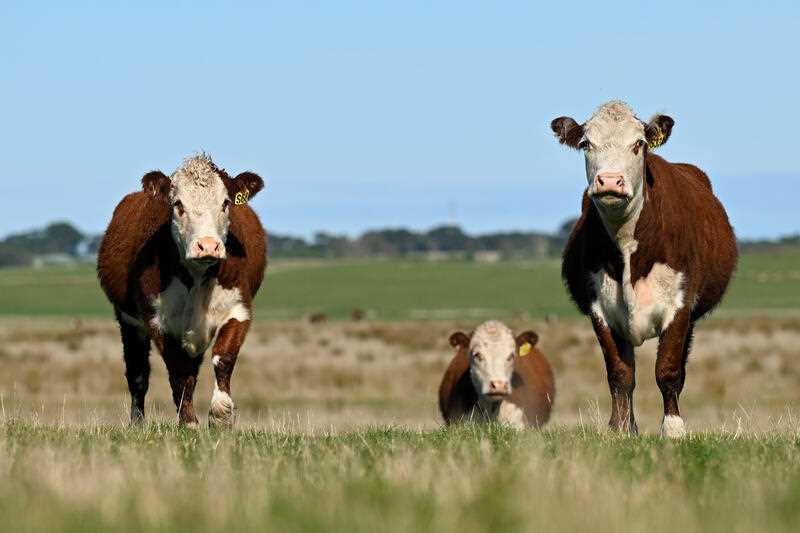Australian farmers are fronting the charge on calls to fast track research into reducing greenhouse gas emissions from livestock.
Led by Australia’s Farmers’ Federation, the Agriculture Climate Alliance includes the Federated Farmers New Zealand and Federation of Rural Association of Mercosur which covers Argentina, Bolivia, Brazil, Chile, Paraguay, Uruguay and Colombia.
Details of the pact have been released as food and agriculture took centre stage at the United Nations’ COP28 climate conference in Dubai on Sunday.
The group wants agriculture to be at the centre of global efforts to mitigate and adapt to climate change.
Agriculture is a major focus at this year’s summit, with a full agenda on Sunday dedicated to food and farming topics.
“We are being proactive in this space,” National Farmers’ Federation president David Jochinke told AAP from Dubai.
“When we talk about climate and agriculture’s role in it, it needs to be included in the conversation and not limiting productivity.”
International agriculture and food security expert Mark Howden says the alliance is a positive step.
“Having a robust agricultural sector is really important for economic and regional development and social factors,” he said.
But he warned that much of what the alliance is pushing has been previously acknowledged in the Paris Agreement signed eight years ago at COP21.
“To say agriculture and food have been ignored or imply that’s the case is simply not true,” said Professor Howden, who is also vice chair of the United Nation’s Intergovernmental Panel on Climate Change.
“Yes they’re bringing attention to this topic but it’s a topic which has already been accepted as being important.”
The formation of the alliance brings into focus what it will be able to produce in practical terms.
Last year Australia signed up to a global pledge to cut methane emissions by 30 per cent over the next decade from 2020 levels.
But according to government data agricultural greenhouse gas emissions have increased four per cent over the previous quarter as farmers restock their herds after the drought.
“Since 2020 our methane emissions have gone up significantly, whereas according to the methane pledge we should actually be starting the journey to reduce those greenhouse gas emissions from agriculture,” Prof Howden said.
One of the five key aims of the alliance is for the recognition of the role of livestock in the global agri-food system and the fast-tracking of research around greenhouse gas emissions.
“It’s excellent to have this formal international co-operation between farmers to reduce emissions,” Natalie Collard from Farmers for Climate Action said.
The head of the Macdoch Foundation, Michelle Gortan who is co-hosting the Food Systems Partnership Pavilion in Dubai also praised the alliance.
“We welcome initiatives that centre the needs of farmers to manage for resilience, productivity and profitability in the face of climate change,” she said.
“Currently, the research available to meaningfully support them is limited and weak.”



